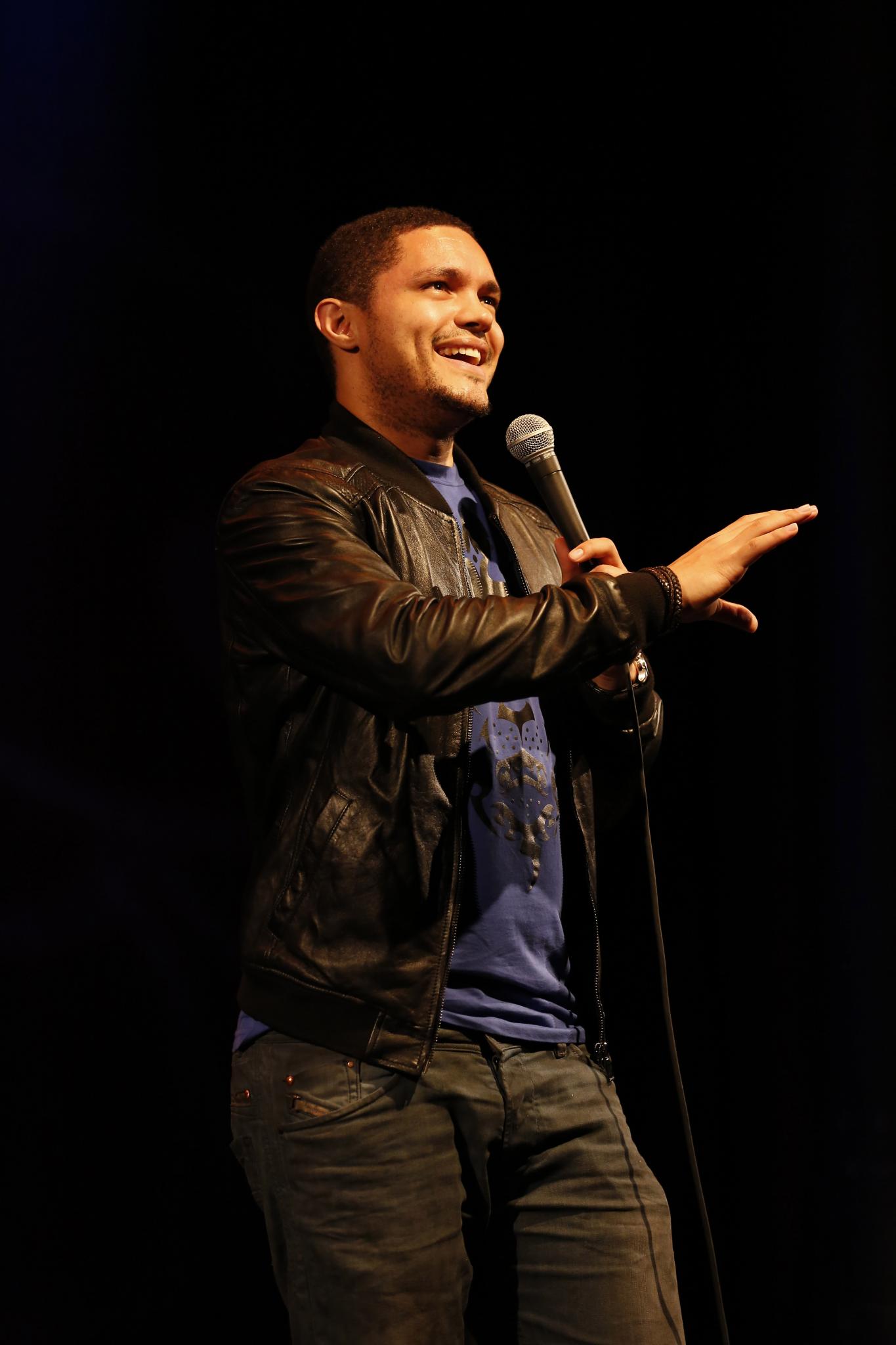
ESSENCE.com’s “New and Next” column spotlights the brightest new talents we think you should know. This week we meet South African comedian Trevor Noah who has appeared on The Late Show with David Letterman and the Tonight Show with Jay Leno and is currently starring in his one-man play Born a Crime.
ESSENCE: One of the funniest jokes you tell is about being confused for Latino.
Noah: I’m from Africa, a place that’s as Black as it gets. It’s a very weird thing. I get Dominican a lot in New York. That’s the moniker I’ve been given. I do get Brazilian now and again. It’s funny because you’ll meet people and they’ll argue with you like ‘No you are Dominican’ and I respond ‘I’m pretty certain I’m a Black person,’ and they go ‘No you’re Dominican.’ It’s very interesting. My favorite is when I was doing a show with Tony Rock in Los Angeles, and someone came on stage after I’d been on and he said ‘ I didn’t even know they had yellow brothers in the motherland.’ So it’s something I’m beginning to understand. I understand how it works.
ESSENCE: It’s not often that American audiences hear from African comedians. What are some the misconceptions you’ve encountered in your time here?
Trevor Noah: The main misconception would be around what Africa is in terms of everything from skin color to accent, style and just the cultural things. Lots of people have preconceived notion of Africa and what they think it is.
ESSENCE: What are the differences between American audiences and African audiences?
Noah: “African audiences” is too broad of a statement to make because even in America the audiences change from one group to another from one city to another. I will say though that as a whole, American audiences are more familiar with stand-up comedy as opposed to African audiences. Where for African audiences it’s still more in the realm of storytelling versus being joke tellers. It’s not a very common thing so even the audiences don’t process the comedy the same.
ESSENCE: How did you end up on tow of the biggest late night TV shows, Leno and Letterman?
Noah: In the bits in between when no one is hearing about you, you are grinding away and working in clubs. I was working small clubs in America for almost two years. Running around from state to state, city to city, club-to-club, working and learning American audiences and doing shows. Then luckily enough the right people hear about you and people refer you and people want to hear your stuff and I’m just glad they liked it enough to have me on their shows.
ESSENCE: Has life changed after those shows?
Noah: I don’t really know. I do it for different reasons. Growing up there wasn’t any sort of reference to South Africa on international television other than very negative things so I always wanted to be in a position to either be the person or be a part of something that was world wide but from a South African perspective and still very authentically South African and so that’s what I’ve always done. I love being the South African guy on an international platform because I know it’s something that hasn’t been done and it works well for both sides. As South Africans and Africans they can say ‘Oh, ok this thing is possible. Someone from our side telling our story,’ and then an American is like ‘Oh, ok this is different from what we expected.’
ESSENCE: Have you connected with any African-American comedians and have they given you any advice about performing in this country?
Noah: Definitely, there are some fantastic guys that I’ve worked with. There are no golden nuggets per se. The audience is the one who gives you those nuggets and you have to pick them up along the way. There’s no particular way to do the thing. No one can help you with that. They can give you global advice in terms of life as a comedian and as a human being.
ESSENCE: Who are some of the people that inspire you and that you look up to as the kings of comedy?
Noah: The kings are indisputable. Richard Pryor, Cosby, for me personally I didn’t know of him before I started comedy but Eddy Murphy changed my view on the thing and I definitely look up to him as a comedic influence. Chris Rock in terms of the modern Black comedian and Dave Chappelle. Those are the guys that have laid the foundation and have moved the yard stick for all comedians, not just Black comedians.
Trevor Noah’s Born a Crime runs through June 29. His TV special Trevor Noah: African American premieres on Showtime on July 6 at Midnight







